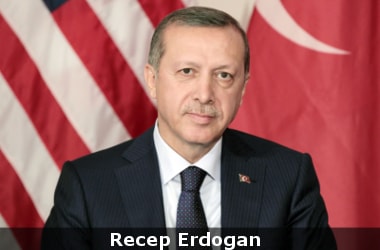
President Recep Tayyip Erdogan narrowly won a historic referendum on April 17, 2017 that will tighten his grip on power.
The knife-edge result left the country bitterly divided and the opposition crying foul.
This referendum creates a presidential system, giving Mr. Erdogan more power than any leader since modern Turkey's founder Mustafa Kemal Ataturk and his successor Ismet Inonu.
Turkey which joined NATO in 1952 and for the last half-century has set its sights on joining the European Union is now on the move.
The 'Yes' campaign won 51.4 percent of the vote against 48.6 percent for 'No', in a count based on 99.5 percent of the ballot boxes. Turnout was a high 85 percent.
Supreme Election Board chief Sadi Guven confirmed that the 'Yes' camp had emerged victorious, but the opposition has vowed to challenge the outcome.
The referendum was held under a state of emergency that has seen 47,000 people arrested in an unprecedented crackdown after a failed military ouster against Mr. Erdogan in July 2016.
The 'No' share of the vote climbed as more ballots were counted, after lagging well behind in the early count, but failed to overtake the 'Yes' votes.
Voting patterns showed Turkey deeply divided over the changes, with the 'No' vote victorious in the country's three biggest cities.
The 'Yes' vote held up strongly in Mr. Erdogan's Anatolian heartland but the Aegean and Mediterranean coastal regions and Kurdish-dominated southeast backed the 'No' camp.
European Commission head Jean-Claude Juncker and EU foreign affairs chief Federica Mogherini indicated that in view of the closeness of the result, the Turkish authorities need to seek the "broadest possible national consensus" for the changes.
Mr. Erdogan made relations with the EU a key issue in his referendum campaign.
Turkey's two main opposition parties said they would challenge the results over alleged violations.
The pro-Kurdish Peoples' Democratic Party (HDP) said it would challenge two-thirds of the votes.
The opposition had already complained that the referendum was conducted on unfair terms, with 'Yes' posters ubiquitous on the streets and opposition voices squeezed from the media.
The new system would dispense with the office of prime minister and centralise the entire executive bureaucracy under the president, giving Erdogan the direct power to appoint ministers.
It is due to come into force after elections in November 2019. Erdogan, who became president in 2014 after serving as premier from 2003, could then seek two more five-year terms.